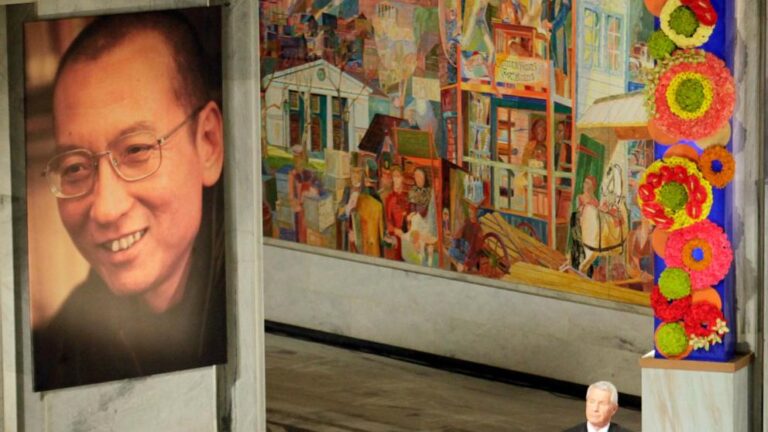WASHINGTON — Business is booming for “The Company.”
The eight-person State Department team is leading Washington’s efforts to mitigate the economic damage to countries targeted by China.
The company was born two years ago in Lithuania’s struggle to help its country in its dispute with China over Taiwan, and now it is helping a growing number of countries deal with what diplomats call economic pressure from Beijing.
“Countries are knocking on our doors and calling us,” State Department Undersecretary Jose Fernandez told The Associated Press in a recent interview. “We run a consulting firm that doesn’t have to advertise every time we have a client.”
The group, led by State Department senior adviser Melanie Hart, is examining vulnerabilities and developing responses for countries that fear being cut off or losing trade with China, a global power. Since the group’s launch with Lithuania, more than 10 countries have asked the Biden administration for help, Fernandez said.
The effort comes as Washington steps up its campaign to counter China’s global influence and tensions rise between the rivals.
The Chinese Embassy in Washington disputed the notion that Beijing was exerting economic pressure on other countries, calling it “completely baseless.” The embassy argued that it is the United States that is economically blackmailing China by abusing export controls, unfairly treating Chinese companies and casting Beijing as the perpetrator of economic coercion.
Fernandez said it was a tactic China has used “time and time again. They believe that threats work. That’s why we took action. It’s time for this to stop.”
For example, when a Norwegian committee awarded the Nobel Peace Prize to a Chinese dissident in 2010, Beijing halted salmon purchases from the Nordic countries. Two years later, China refused to import bananas from the Philippines, citing territorial disputes in the South China Sea. In 2020, when Australia called for an investigation into the origins of the COVID-19 pandemic, Beijing responded by raising tariffs on Australian barley and wine.
Then there was Lithuania. In late 2021 and early 2022, Lithuanian companies saw freight shipments to and from China backed up and received warnings from major European companies that Lithuanian-made car parts would be barred from being shipped to the Chinese market.
This came after Lithuania allowed Taiwan’s de facto embassy in Vilnius to be named Taiwan, rather than the island’s capital, Taipei, which Beijing prefers. China considers the self-governing island part of Chinese territory and had protested against the use of the name Taiwan.
Instead of giving in, the Nordic countries asked for help, and the United States and its allies stepped up to help.
American diplomats sought new markets for Lithuanian products: the Washington Export-Import Bank provided Vilnius with $600 million in export credits, and the Department of Defense signed a procurement agreement with the country.
And “the firm” continued its efforts. The State Department served as the first line of response, working with other U.S. government agencies and using “the full range of tools at the disposal of the U.S. government,” according to a State Department official who spoke on the condition of anonymity to discuss team details.
While it will take years to restructure global supply chains and reduce reliance on countries such as China, the team is trying to provide a faster way to mitigate crises, the official said, likening it to an ambulance service “helping to get through a terrible emergency.”
For example, the U.S. might work with a partner to help a country quickly transition agricultural products to new markets, build more cold storage facilities so products can reach markets further away, or improve product quality to reach more markets, the officials said.
The official said the assistance was confidential and declined to discuss what resources the team had available or to name the countries that had requested help.
Shay Wester, director of Asian economic issues at the Asia Society Policy Institute, called it an “important and much-needed effort.”
“China’s increasing use of economic coercion to pressure countries over political disputes is a significant challenge that requires a coordinated response,” said Wester, co-author of an April report on the issue.
Wester said the response from other countries shows there’s a high demand for this kind of assistance.
This month Lithuania hosted a conference on resisting economic pressure, with Foreign Minister Gabrielius Landsbergis saying the aim of the action was “to crush the victims by forcing the reversal and public renunciation of the policy.”
Chinese embassy spokesman Liu Pengyu said the issue with Lithuania “is political, not economic. The problem was caused by Lithuania’s malicious actions which harmed China’s interests, not due to China’s pressure on Lithuania.”
Fernandes, who attended the meeting, praised Lithuania for standing up to China. “Lithuania has given us an opportunity to prove that there are alternatives to coercion,” he said.

